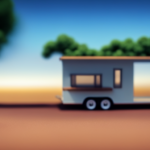Beginners Guides
How Much Is A Tiny House Trailer
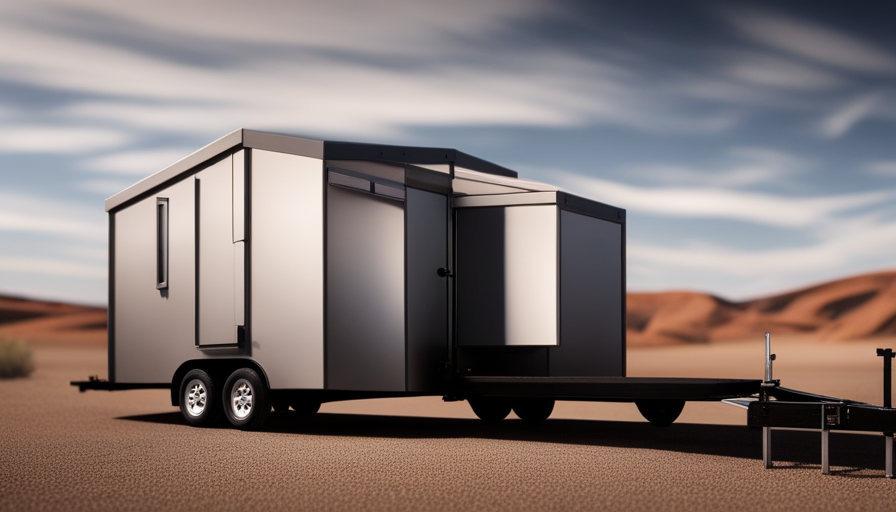
Are you prepared to dive into the exciting world of tiny homes? Get set for a revelation that’s going to astound you because I’m here to uncover the astonishing reality regarding the cost of tiny house trailers. You’ll be amazed at how budget-friendly these compact wonders truly are!
In this informative article, I will take you on a journey through the world of tiny house trailers. We’ll explore different types, sizes, and materials, as well as the customization options available. I’ll even introduce you to some top-notch trailer manufacturers who specialize in crafting these remarkable homes on wheels.
But the burning question on everyone’s mind is, ‘How much do these tiny house trailers actually cost?’ Fear not, my curious friend, because I have all the answers you seek. I’ll break down the pricing factors and reveal the average cost of these trailers, ensuring you’re well-equipped to budget for your tiny dream home.
So, if you’re ready to dive deep into the enchanting world of tiny house trailers and discover their surprisingly reasonable price tags, let’s get started!
Key Takeaways
- Tiny house trailers offer an affordable option for those looking for a grand adventure in tiny living.
- There are different types, sizes, and materials of tiny house trailers, including drop axle, deck over, and gooseneck, each with its own advantages and considerations.
- Tiny house trailers have dimensions ranging from 12 to 32 feet in length and around 8.5 feet in width, with varying heights based on design preferences and restrictions.
- Tumbleweed is a popular brand known for its exceptional quality and attention to detail in tiny house trailers, offering customization options and a reputation for sturdy construction and high-quality materials.
Types of Tiny House Trailers
If you’re looking for a tiny house trailer, you’ll be amazed at the variety of options available to you. One of the most important factors to consider when choosing a tiny house trailer is its weight. Different types of trailers have different weight capacities, so it’s crucial to choose one that can support the weight of your tiny house.
Some common types of tiny house trailers include drop axle, deck over, and gooseneck trailers.
Drop axle trailers are the most common type and have a lower deck height, making it easier to tow. However, they have a lower weight capacity compared to other types.
On the other hand, deck over trailers have a higher weight capacity and provide more space for insulation and utilities. However, they have a higher deck height, which can make towing more challenging.
Gooseneck trailers are another popular option, especially for larger tiny houses. They provide better stability and weight distribution, as the hitch is located above the truck’s rear axle. However, they require a larger towing vehicle and can be more expensive.
Each type of tiny house trailer has its own pros and cons, so it’s essential to consider your specific needs and preferences. With this understanding of different trailer types, let’s now dive into the size and dimensions of tiny house trailers.
Size and Dimensions
When you’re considering the size and dimensions of your future home on wheels, it’s important to find a trailer that perfectly suits your needs.
One of the key factors to consider is the weight of the tiny house trailer. The weight of the trailer will determine how much weight it can carry, including the weight of the house itself. Different trailers have different weight capacities, so it’s crucial to choose a trailer that can handle the weight of your tiny house.
In addition to weight, you’ll also want to think about the towing capacity of the trailer. The towing capacity refers to the maximum weight that the trailer can be safely towed. It’s important to ensure that your vehicle is capable of towing the combined weight of the trailer and tiny house.
When it comes to size and dimensions, tiny house trailers generally range from around 12 feet to 32 feet in length. The width is typically around 8.5 feet, which allows for easy transportation on the road. The height can vary depending on your design preferences, but it’s important to keep in mind any height restrictions when planning your tiny house.
Now that we’ve covered the size and dimensions of the trailer, let’s take a look at the different materials that are commonly used for building tiny house trailers.
Trailer Materials
As you consider the size and dimensions of your future home on wheels, take a moment to delve into the world of trailer materials and explore the options available to you. When it comes to tiny house trailers, the construction of the trailer is crucial to ensure the safety and durability of your tiny home.
There are several materials commonly used in trailer construction, each with its own pros and cons. One popular option is steel, known for its strength and durability. Steel trailers can handle heavy loads and are often preferred for their longevity. However, they tend to be heavier than other materials, which can impact the overall weight capacity of your tiny house.
Another common material is aluminum, which is lighter than steel but still offers good durability. Aluminum trailers are resistant to rust and corrosion, making them a popular choice for those living in wet or humid climates. However, they may not be as strong as steel trailers and may have a lower weight capacity.
When choosing a trailer material, it’s important to consider both the weight capacity and the overall construction of the trailer. This will ensure that your tiny house is safe and can withstand the demands of the road. With the right trailer material in mind, you can now move on to exploring the customization options available for your tiny home.
Customization Options
When it comes to customizing a tiny house, there are a multitude of options to consider. Additional features such as solar panels, composting toilets, and rainwater collection systems can enhance sustainability and off-grid living.
Upgrades like high-end appliances, custom cabinetry, and luxury finishes can add a touch of elegance and personalization. And don’t forget about the add-ons, such as a rooftop deck or a built-in storage shed, that can maximize space and functionality.
The possibilities are endless when it comes to making your tiny house truly your own.
Additional Features
To fully maximize your tiny house trailer, you can add additional features that will elevate your living experience. When considering these features, it’s important to take into account the weight limitations of your trailer.
Tiny house trailers have weight limits set by regulations, so it’s crucial to ensure that any additional features you add do not exceed these limits. Some popular additional features for tiny house trailers include solar panels, composting toilets, and rainwater collection systems. These features can enhance your sustainability and self-sufficiency while living in a tiny house.
Additionally, you may want to consider adding a porch or deck to expand your living space and create a comfortable outdoor area. Upgrades and add-ons allow you to customize your tiny house trailer to meet your specific needs and preferences.
Upgrades and Add-ons
Adding upgrades and add-ons to your tiny house trailer can transform it into a luxurious and versatile living space that will make you feel like you’re living in a five-star hotel on wheels. When it comes to tiny house trailer storage, there are numerous options available to maximize the limited space. Consider adding built-in shelving units, under-bed storage compartments, or overhead cabinets to keep your belongings organized and easily accessible. Additionally, you can enhance the towing capacity of your trailer by installing heavy-duty axles, upgraded suspension systems, or electric brakes. These upgrades will not only provide a smoother towing experience but also ensure the safety and stability of your tiny house on the road. As you explore the world of upgrades and add-ons, you’ll find endless possibilities to customize your tiny house trailer to fit your unique needs and preferences. Transitioning into the subsequent section about ‘trailer manufacturers,’ you can discover reputable companies that offer a wide range of custom options for your tiny house trailer.
Trailer Manufacturers
When it comes to choosing a trailer for your tiny house, it’s important to consider the popular brands in the market. These brands have built a reputation for producing high-quality trailers that are specifically designed for tiny house construction.
Additionally, reading customer reviews and ratings can provide valuable insights into the performance, durability, and overall satisfaction of the trailers from these brands.
Popular Brands
One of the most popular brands of tiny house trailers is Tumbleweed. When it comes to tiny house trailers, Tumbleweed is known for their exceptional quality and attention to detail.
Here are a few reasons why Tumbleweed is a popular choice among tiny house enthusiasts:
-
Durability: Tumbleweed trailers are built to last, with heavy-duty materials that can withstand the rigors of travel.
-
Customization: Tumbleweed offers a range of trailer sizes and options, allowing customers to customize their tiny house to fit their needs and preferences.
-
Versatility: Tumbleweed trailers are designed to accommodate a variety of tiny house designs, from modern to rustic.
-
Reliability: Tumbleweed has a solid reputation for delivering high-quality trailers and providing excellent customer service.
When it comes to tiny house trailers, Tumbleweed is a brand that consistently receives positive customer reviews and ratings. Moving on to the next section about customer reviews and ratings, it’s important to consider the experiences of those who have purchased and used Tumbleweed trailers.
Customer Reviews and Ratings
Imagine yourself stepping into the world of Tumbleweed trailers, where the voices of satisfied customers sing harmoniously, painting a vibrant picture of their unforgettable experiences. Tumbleweed customers rave about the exceptional customer satisfaction they receive when purchasing their tiny house trailers. The durability and reliability of these trailers are often mentioned, with many customers praising their ability to withstand harsh weather conditions and long journeys.
Reviews highlight the sturdy construction and high-quality materials used in Tumbleweed trailers, ensuring a safe and comfortable living space. Customers appreciate the attention to detail and craftsmanship that goes into each trailer, making them confident in their investment.
Transitioning to the next section about pricing factors, it’s important to consider these customer reviews and ratings when determining the value of a tiny house trailer.
Pricing Factors
The size and materials used in constructing a tiny house trailer greatly affect its pricing. When it comes to pricing comparison, it’s important to consider these factors.
Generally, larger trailers tend to be more expensive than smaller ones. This is because they require more materials and labor to build. Additionally, the type of materials used can also impact the price. High-quality, durable materials such as steel or aluminum will generally cost more than lower-quality materials.
If you’re looking to save money, you may consider second-hand options. Purchasing a used tiny house trailer can be a cost-effective solution. However, it’s crucial to thoroughly inspect the trailer and ensure it’s in good condition before making a purchase.
The size and materials used in constructing a tiny house trailer are the primary factors that determine its pricing. Larger trailers and high-quality materials will generally result in a higher cost. On the other hand, opting for a second-hand trailer can be a more affordable option.
In the next section, we’ll dive into the average cost of tiny house trailers, providing further details on pricing.
Average Cost of Tiny House Trailers
On average, it’ll cost you around $10,000 to get yourself a tiny house trailer. However, the final price can vary depending on several factors. To give you a better understanding of the cost comparison, let’s take a look at a table showcasing the average prices of tiny house trailers in comparison to other housing options:
| Housing Option | Average Cost |
|---|---|
| Tiny House Trailer | $10,000 |
| Traditional House | $200,000 |
| RV | $50,000 |
| Mobile Home | $70,000 |
As you can see, a tiny house trailer is significantly more affordable compared to traditional houses, RVs, or mobile homes. This makes it a popular choice for those looking for a cost-effective housing solution. Additionally, opting for a DIY approach and building your own tiny house trailer can further reduce costs. DIY options allow you to save money on labor and potentially customize your trailer according to your needs and preferences.
Now that you have an idea of the average cost of a tiny house trailer and the cost comparison with other housing options, let’s move on to the next section where we will discuss budgeting tips for buying a tiny house trailer.
Budgeting Tips for Buying a Tiny House Trailer
Now that we know the average cost of tiny house trailers, let’s talk about some budgeting tips for buying one. As someone who’s gone through the process myself, I understand the importance of careful planning and consideration.
One important factor to keep in mind is the maintenance of a tiny house trailer. While trailers are generally low-maintenance, it’s still essential to regularly inspect and maintain them to ensure their longevity and safety. This includes checking the tires, brakes, and hitch, as well as addressing any rust or damage that may occur over time.
Another budgeting tip is to consider buying a used trailer. While new trailers can be more expensive, buying used can help save a significant amount of money. However, it’s crucial to thoroughly inspect a used trailer before purchasing to ensure it’s in good condition and meets your specific needs.
By being mindful of these budgeting tips, you can save money while still acquiring a high-quality tiny house trailer. Now that we’ve discussed maintenance and the benefits of buying used, let’s move on to financing and payment options.
Financing and Payment Options
Consider exploring various financing and payment options to make purchasing your dream tiny house trailer a reality. When it comes to financing options, there are a few routes you can take.
One option is to apply for a personal loan from a bank or credit union. These loans can provide you with the funds you need to purchase your tiny house trailer, and you can repay the loan over a set period of time.
Another option is to finance through the manufacturer or dealer of the tiny house trailer. They may offer financing plans that are specifically tailored to the purchase of their trailers. This can be a convenient option, as it allows you to bundle the cost of the trailer with any additional features or upgrades you may want.
Affordability factors are important to consider when exploring financing options. Factors such as the cost of the trailer, your credit score, and your income will all play a role in determining what financing options are available to you. It’s important to carefully evaluate your financial situation and determine what you can comfortably afford before committing to any financing plan.
Additionally, be sure to shop around and compare different financing options to ensure you’re getting the best deal possible. By exploring various financing and payment options, you can make purchasing your dream tiny house trailer a reality while keeping affordability in mind.
Frequently Asked Questions
Are tiny house trailers legal to live in permanently?
Living in a tiny house trailer permanently is a popular option for many people seeking a simpler lifestyle. According to a survey conducted by the American Tiny House Association, around 63% of tiny house owners live in their homes full-time.
However, it’s important to consider the regulations surrounding tiny house trailers. While they’re legal in many areas, zoning laws and building codes vary. It’s crucial to research local regulations before committing to this lifestyle.
How long does it take to build a tiny house on a trailer?
It typically takes around 4-6 months to build a tiny house on a trailer, depending on the complexity of the design and the level of customization. The building timeline can be broken down into different stages, including planning and design, acquiring materials, construction, and finishing touches.
The cost breakdown varies greatly depending on factors such as size, materials, and finishes chosen, but a general estimate for a well-built tiny house on a trailer is around $20,000 to $80,000.
Can a tiny house trailer be modified to accommodate specific needs, such as wheelchair accessibility?
Yes, a tiny house trailer can be modified to accommodate specific needs, such as wheelchair accessibility. This can involve installing a wheelchair ramp for easy access and making interior layout modifications to ensure there’s enough space to maneuver a wheelchair. These modifications may include wider doorways, lowered countertops, and accessible bathroom features.
It’s important to consult with professionals experienced in tiny house construction to ensure the modifications are done correctly and safely.
Are there any restrictions on where I can park a tiny house trailer?
When it comes to parking a tiny house trailer, there are certain restrictions to keep in mind. Zoning regulations vary from place to place, so it’s important to research the local laws before settling down.
Some areas may require you to park in designated RV parks or campgrounds, while others may allow you to park on private property with certain conditions. It’s crucial to comply with these regulations to avoid any legal issues and ensure a smooth living experience.
Can I tow a tiny house trailer with a regular car or do I need a specialized vehicle?
You will need a specialized vehicle to tow a tiny house trailer. Regular cars typically don’t have the towing capacity required to safely tow a tiny house. A specialized vehicle, such as a truck or SUV, is designed with the necessary towing capabilities to handle the weight and size of a tiny house trailer. Using a specialized vehicle ensures a safer and more efficient towing experience, reducing the risk of damage to your trailer or vehicle.
Conclusion
In conclusion, the cost of a tiny house trailer can vary depending on various factors such as size, materials, customization options, and the manufacturer. It is important to budget and consider financing options before making a purchase.
With the popularity of tiny homes on the rise, it’s crucial to do thorough research and compare prices to ensure you’re getting the best deal for your dream tiny home.
So, don’t wait, start your journey towards a minimalist and sustainable lifestyle with a tiny house trailer today!
Hi, I’m Emma. I’m the Editor in Chief of Tiny House 43, a blog all about tiny houses. While tree houses are often associated with childhood, they can be the perfect adult retreat. They offer a cozy space to relax and unwind, surrounded by nature. And since they’re typically built on stilts or raised platforms, they offer stunning views that traditional homes simply can’t match. If you’re looking for a unique and romantic getaway, a tree house tiny house might just be the perfect option.
Beginners Guides
How To Frame A Tiny House

Are you prepared to start your minimalist living adventure? Imagine a tranquil retreat surrounded by nature, where every bit of space is optimized for convenience and coziness. Welcome to the realm of tiny houses.
But, before you can start enjoying the benefits of tiny living, you need to know how to frame your very own tiny house. In this article, I will guide you through the process step by step, ensuring that you have all the knowledge and tools necessary to bring your tiny house dreams to life. From determining the size and layout to finishing those exterior touches, we will cover it all.
So, grab your hammer and let’s get started on the exciting journey of framing a tiny house!
Key Takeaways
- Framing a tiny house is crucial for achieving functionality and comfort in a limited space.
- Careful consideration of the size and layout is necessary to meet individual lifestyle and needs.
- Sketching out different floor plans helps in finding the perfect arrangement before starting the framing process.
- Safety precautions, permits, and compliance with building codes are essential during the framing process.
Determine the Size and Layout of Your Tiny House
So, you’re ready to start building your dream tiny house, but first, let’s figure out just how big and how it’s going to be laid out!
Determining the size and layout of your tiny house is crucial for maximizing space and incorporating multi-functional furniture. Begin by considering your lifestyle and needs. Think about how many rooms you’ll require and how you want them arranged.
Take into account the dimensions of your furniture and appliances to ensure they fit comfortably. Sketch out different floor plans, experimenting with various layouts until you find the perfect arrangement.
Once you have a clear vision, gather the necessary tools and materials to bring your dream tiny house to life. Transitioning into the next section, having the right tools will enable you to tackle the framing process with ease.
Gather the Necessary Tools and Materials
First, you’ll need to gather all the essential tools and materials, because let’s face it, building a mini abode without them would be like trying to catch a fish with a toothpick – completely pointless.
When it comes to framing a tiny house, choosing the right framing techniques is crucial. You’ll need a reliable circular saw to make precise cuts on the lumber, a framing square to ensure accurate angles, and a level to keep everything plumb and square. Additionally, a nail gun with appropriate nails will save you time and effort when securing the framing members together.
Safety precautions are of utmost importance during the framing process. Always wear protective eyewear, gloves, and a hard hat. Use sturdy ladders and scaffolding, and secure them properly.
Finally, remember to gather all necessary permits and consult local building codes before proceeding with the framing.
Now that you have all the tools and materials, let’s move on to preparing the foundation for framing.
Prepare the Foundation for Framing
To adequately prepare the foundation for framing, you must ensure that all necessary permits are obtained and local building codes are consulted.
Before starting the construction process, it’s crucial to prepare the ground by removing any vegetation, rocks, or debris that may interfere with the foundation.
Next, you need to level the foundation area using a laser level or a string level to ensure a flat and even surface. This step is vital as it’ll determine the stability and durability of your tiny house.
Once the ground is prepared, you can proceed to frame the walls and install window and door openings.
By following these steps, you’ll create a solid foundation that’ll provide a sturdy base for the rest of your tiny house construction.
Frame the Walls and Install Window and Door Openings
Once you’ve prepared the foundation, it’s time to roll up your sleeves and start building those walls. Add in the windows and door openings for a touch of character and functionality. Begin by framing the walls using 2×4 lumber, ensuring they’re plumb and square.
Install the window openings by measuring and cutting out the appropriate size in each wall, leaving room for headers and sills. Secure the windows in place using screws or nails, making sure they’re level and properly sealed to prevent any drafts or water leaks.
Next, frame the door openings, accounting for the door size and necessary clearance. Install the door frames, ensuring they’re level and securely attached to the surrounding wall framing.
Finally, transition into the subsequent section about framing the roof and installing roof trusses by ensuring the walls are sturdy and ready to support the next phase of construction.
Frame the Roof and Install Roof Trusses
Now that you’ve built the sturdy walls and installed the windows and door openings, it’s time to take your construction to new heights by framing the roof and installing the roof trusses.
Roof truss installation techniques are crucial to ensure the stability and durability of your tiny house. When choosing the right roofing materials, consider factors such as weight, weather resistance, and aesthetic appeal. Common options include asphalt shingles, metal roofing, and cedar shakes. Additionally, make sure to select a roofing material that complements the overall design of your tiny house.
Once you have the materials ready, begin by attaching the roof trusses to the top plates of the walls. Ensure proper alignment and secure them using nails or screws. This step is essential as it forms the foundation for installing insulation and vapor barrier, which will be covered in the next section about installing insulation and vapor barrier.
Install Insulation and Vapor Barrier
As you work on creating a cozy and well-insulated sanctuary, imagine wrapping your tiny haven in a protective cocoon with insulation and vapor barrier materials.
Proper insulation is crucial to maintaining a comfortable temperature inside your tiny house and preventing energy loss. Start by choosing insulation materials that are suitable for your climate and provide maximum thermal resistance. Common options include fiberglass, spray foam, and rigid foam boards.
Install the insulation between the wall studs, roof trusses, and floor joists, ensuring a tight fit to minimize air leakage.
Next, add a vapor barrier to prevent moisture buildup. This can be a plastic sheet or a special vapor barrier paint. Secure the barrier to the interior side of the insulation, ensuring a continuous seal.
By following these insulation tips and moisture prevention techniques, you can create a well-insulated and protected tiny house.
Moving on to the next step of the process, let’s now discuss how to install electrical and plumbing systems.
Install Electrical and Plumbing Systems
To create a fully functional and comfortable living space, you’ll need to install electrical and plumbing systems, ensuring that your tiny sanctuary is equipped with essential amenities.
When it comes to electrical wiring, it’s crucial to plan the layout carefully and adhere to local building codes. Begin by installing the electrical service panel and running the main power supply. From there, you can route the wiring to outlets, switches, and light fixtures throughout the tiny house. Make sure to follow proper safety precautions, such as grounding and using GFCI outlets in wet areas.
In addition to electrical wiring, plumbing installation is another vital aspect. Start by connecting the main water supply line and installing a water heater if desired. Proceed to install the plumbing for sinks, showers, toilets, and any other necessary fixtures. Use PEX or PVC pipes, ensuring proper ventilation and drainage. Don’t forget to insulate any exposed pipes to prevent freezing during colder months.
By completing the installation of electrical and plumbing systems, you’ll be one step closer to enjoying a fully functional tiny house. Next, we’ll delve into how to finish the interior walls and ceiling seamlessly.
Finish the Interior Walls and Ceiling
Once the electrical and plumbing systems are in place, it’s time to tackle the interior walls and ceiling. This involves finishing the interior walls and ceiling to create a cozy and inviting space. Did you know that the average homeowner spends about 20% of their renovation budget on this step?
When it comes to choosing the right paint color, it’s important to consider the overall aesthetic you want to achieve. Lighter colors can make a small space feel larger and more open, while darker colors can add depth and warmth.
Additionally, selecting the best lighting fixtures is crucial for both functionality and style. You should consider the type of lighting you need in each area of the tiny house and choose fixtures that complement the overall design.
Next, we will delve into the next step of the process, which involves installing the flooring and cabinets to complete the interior transformation.
Install Flooring and Cabinets
After completing the interior walls and ceiling, it’s time to focus on installing the flooring and cabinets to truly bring the space to life. When it comes to flooring, there are various options to consider for a tiny house. You can choose from hardwood, laminate, vinyl, or tile, depending on your personal preference and budget. It’s important to ensure that the flooring is durable and easy to clean, as space is limited.
In terms of cabinets, selecting the right ones can make a huge difference in maximizing storage and functionality. Consider choosing cabinets that are compact and space-saving, with built-in organizers for better organization. Additionally, installing countertops is an essential step in completing the kitchen area. Choose a countertop material that is both aesthetically pleasing and durable, such as quartz or granite.
Once the flooring and cabinets are installed, it’s time to move on to the next phase of the project: the complete exterior finishing touches.
Complete Exterior Finishing Touches
Don’t forget the final touches on the exterior – the details that’ll truly make your tiny house shine! When it comes to exterior finishing touches, there are a few key elements to consider.
Here are some ideas to enhance the overall look and feel of your tiny house:
-
Exterior paint options: Choose a color scheme that complements the surroundings and reflects your personal style. Consider using durable, weather-resistant paints that’ll protect your tiny house from the elements.
-
Landscaping ideas: Enhance the curb appeal by incorporating landscaping elements such as flower beds, shrubs, or even a small garden. Select low-maintenance plants that can thrive in the local climate and require minimal watering and upkeep.
-
Lighting fixtures: Install outdoor lighting fixtures strategically to illuminate pathways, highlight architectural features, and create a warm ambiance. Opt for energy-efficient LED lights to minimize electricity consumption.
By paying attention to these exterior finishing touches, you can transform your tiny house into a visually appealing and inviting space.
Frequently Asked Questions
How much does it cost to frame a tiny house?
The cost breakdown for framing a tiny house can vary depending on several factors. On average, it can cost between $5,000 and $15,000 to frame a tiny house. However, there are cost-saving options available.
Utilizing salvaged or recycled materials can significantly reduce costs. Additionally, opting for a simple design with fewer corners and angles can minimize the amount of framing required. It’s important to consider these factors when budgeting for framing a tiny house.
Can I use recycled materials for framing my tiny house?
Yes, I can use recycled materials for framing my tiny house. This offers several benefits. By using recycled materials, I can reduce the environmental impact and save costs. Alternatives to traditional framing methods include reclaimed lumber, salvaged steel, and repurposed shipping containers. These materials are sturdy, durable, and readily available. Incorporating recycled materials in the framing process not only supports sustainability but also adds character and uniqueness to the overall design of the tiny house.
What are the common mistakes to avoid when framing a tiny house?
Common framing mistakes to avoid when constructing a tiny house include improper measuring and cutting of materials, inadequate bracing and support, and neglecting to properly secure the frame to the trailer or foundation.
To ensure efficient framing, it’s important to plan and layout the frame accurately, use quality materials, and follow building codes and regulations.
Additionally, using appropriate tools, techniques, and fasteners will help create a sturdy and durable structure for your tiny house.
How long does it typically take to frame a tiny house?
To speed up the framing process of a tiny house, there are a few tips for efficient construction.
Firstly, organizing and labeling all materials beforehand will save time and reduce confusion.
Secondly, using prefabricated wall panels can significantly reduce framing time.
Additionally, employing a team of experienced framers can expedite the process.
Lastly, having a well-designed and detailed framing plan will ensure smooth execution.
By implementing these strategies, the average time to frame a tiny house can be significantly reduced.
Are there any specific building codes or regulations I need to be aware of when framing a tiny house?
When it comes to framing a tiny house, there are specific building codes and regulations that need to be followed. These codes ensure the structural integrity and safety of the house. Building codes for tiny house framing outline requirements for materials, dimensions, and construction techniques.
Regulations for framing a tiny house may include guidelines for wall framing, roof framing, and floor framing.
It is important to research and comply with these codes and regulations to ensure a well-built and legally compliant tiny house.
Conclusion
In conclusion, framing a tiny house requires careful planning, precise measurements, and a variety of tools and materials. By following the steps outlined in this article, you can successfully construct the frame of your tiny house and create a sturdy and functional living space.
For example, Sarah, a DIY enthusiast, used this framing technique to build her own tiny house on wheels. With determination and attention to detail, she was able to create a cozy and customized home that perfectly suited her needs.
So, whether you’re looking to downsize, live off-grid, or have a portable vacation home, framing a tiny house is a rewarding and fulfilling project that can turn your dreams into reality.
Hi, I’m Emma. I’m the Editor in Chief of Tiny House 43, a blog all about tiny houses. While tree houses are often associated with childhood, they can be the perfect adult retreat. They offer a cozy space to relax and unwind, surrounded by nature. And since they’re typically built on stilts or raised platforms, they offer stunning views that traditional homes simply can’t match. If you’re looking for a unique and romantic getaway, a tree house tiny house might just be the perfect option.
Beginners Guides
Chip And Dale Episode Where They Live In A Tiny House

Were you aware that the average size of a new single-family home in the United States has grown by nearly 1,000 square feet over the last 50 years? It appears that we have an unquenchable thirst for additional space, belongings, and mess.
But what if I told you that there’s a charming Chip and Dale episode where they embrace a completely different lifestyle and live in a tiny house? In this episode, our beloved chipmunks show us the joys and challenges of downsizing and embracing minimalism. They navigate cramped spaces with creativity and find innovative storage solutions that will leave you in awe.
Join Chip and Dale as they embark on their tiny house adventure, maximizing functionality in a small home, and inspiring viewers to think outside the box with their living arrangements. Get ready for a delightful and inspiring journey into the world of Chip and Dale’s tiny house living!
Key Takeaways
- Chip and Dale showcase the joys and challenges of living in a tiny house, inspiring viewers to think outside the box with their living arrangements.
- Creative storage solutions, such as utilizing vertical space and multi-functional furniture, are essential in maximizing functionality in a small home.
- Maximizing natural light and incorporating small space gardening are important aspects of tiny house design.
- Chip and Dale demonstrate that with clever design choices and efficient use of space, every corner of a tiny house can be transformed into a multi-purpose area.
Downsizing and Embracing Minimalism
Get ready to join Chip and Dale as they embark on an exciting adventure of downsizing their lives and fully embracing the joy of minimalism in their adorable tiny house! Living a minimalist lifestyle has numerous benefits, including reduced stress, increased freedom, and a greater focus on what truly matters.
By downsizing their possessions, Chip and Dale are able to simplify their lives and create more space for experiences and meaningful connections. They no longer feel overwhelmed by the burden of excess stuff and instead find joy in the simplicity of their tiny house.
But downsizing is just the beginning. In the next section, we’ll explore how Chip and Dale creatively maximize storage in their tiny house, proving that even in a small space, there’s always room for clever solutions.
Creative Storage Solutions in a Tiny House
Find clever ways to store your belongings in a cramped space. In a tiny house, innovative organization and space-saving furniture are key to maximizing every inch of available space. Here are some creative storage solutions to inspire you:
-
Utilize vertical space: Install shelves or hanging organizers on walls to keep items off the floor and create more storage space.
-
Multi-functional furniture: Choose furniture pieces that serve dual purposes, such as a sofa with built-in storage or a bed with drawers underneath.
-
Magnetic walls: Use magnetic panels or paint a wall with magnetic paint to hang small metal objects like knives or keys.
-
Foldable furniture: Opt for collapsible tables or chairs that can be easily stored away when not in use.
With these clever storage ideas, you can make the most of your tiny house and keep it clutter-free. Now, let’s explore how Chip and Dale navigate cramped spaces in their tiny house without missing a beat.
Navigating Cramped Spaces with Chip and Dale
Squeezing through tight nooks and crannies, it’s as if Chip and Dale effortlessly pirouette through their miniature maze of a home. With their resourceful mindset, they’ve mastered the art of maximizing space and organizing their belongings in their tiny house.
Every inch is utilized to its fullest potential, from clever built-in storage compartments to multifunctional furniture. The walls are adorned with shelves and hooks, creating vertical storage solutions that keep their belongings within reach. Tiny drawers and cabinets neatly house their essentials, while collapsible furniture allows for flexible use of space.
Despite the challenges of cramped quarters, Chip and Dale have found joy in their tiny house living. They’ve learned to appreciate simplicity and the freedom that comes with owning less.
In the next section, we’ll explore the challenges and joys of their unique lifestyle.
The Challenges and Joys of Tiny House Living
Living in a tiny house presents both challenges and joys, as individuals navigate the complexities of maximizing space and finding contentment in simplicity.
-
Limited storage: With limited square footage, finding creative storage solutions is crucial. Utilizing vertical space, such as installing shelves or hanging baskets, can help maximize storage options.
-
Multifunctional furniture: Investing in furniture that serves multiple purposes, like a coffee table that doubles as a storage unit or a sofa that can be converted into a bed, can help optimize space and functionality.
-
Downsizing possessions: Living in a tiny house requires decluttering and minimizing belongings. Embracing a minimalist lifestyle can bring a sense of freedom and reduce the need for excess storage.
-
Outdoor living: Having a small home encourages spending more time outdoors. Creating an inviting outdoor space with seating, plants, and decor can expand the living area and provide a refreshing escape.
Transitioning into the next section, maximizing functionality in a small home involves clever design choices and efficient use of space.
Maximizing Functionality in a Small Home
You’ll be amazed at how you can transform every nook and cranny of your small home into a functional and efficient space. In a tiny house, it’s important to make the most of every square inch and find creative ways to maximize functionality. One way to do this is through small space gardening, which allows you to grow your own herbs and vegetables even in limited space. Another important aspect is maximizing natural light. Clever placement of mirrors and light-colored furnishings can help to create the illusion of a larger space and make it feel brighter and more open. To help you visualize these ideas, here’s a table showcasing some tips for maximizing functionality in a small home:
| Tip | Description |
|---|---|
| Small Space Gardening | Utilize vertical gardening techniques to grow plants in tight spaces |
| Maximizing Natural Light | Position mirrors strategically to reflect and amplify natural light |
| Multi-purpose Furniture | Opt for furniture that can serve multiple functions, such as a sofa bed or a coffee table with storage |
| Wall-mounted Storage | Install shelves and hooks on walls to maximize storage space |
| Organizational Systems | Utilize bins, baskets, and dividers to keep things tidy and organized |
In the next section, we’ll explore design tips for a cozy and stylish tiny house, seamlessly transitioning from maximizing functionality to creating a comfortable living space.
Design Tips for a Cozy and Stylish Tiny House
To create a cozy and stylish atmosphere in a small home, it’s essential to incorporate design elements that add warmth and personality. One way to achieve this is through cozy lighting. Soft, warm lighting can instantly create a welcoming and intimate ambiance. Consider installing dimmer switches or using floor lamps with warm-toned bulbs to create a cozy glow.
Another key aspect is space-saving furniture. In a small home, every inch counts, so opt for furniture that serves multiple purposes. Look for sofas or beds with built-in storage compartments, or consider using a convertible dining table that can be easily transformed into a desk or an extra seating area.
By incorporating these design elements, you can create a cozy and stylish tiny house that maximizes functionality and reflects your personal style.
Transitioning into the next section, let’s explore how to create multi-purpose areas in a tiny house.
Creating Multi-Purpose Areas in a Tiny House
When it comes to transforming your tiny space, think of it as a blank canvas ready to be painted with versatile furniture and clever layouts, turning each corner into a world of possibilities. One of the key strategies for maximizing space in a tiny house is by creating multi-purpose areas. By incorporating multi-functional furniture and space-saving design, you can make the most out of every square inch. For example, a dining table with built-in storage can serve as both a place to eat and a space to store books or other items. A sofa that can be converted into a bed allows you to have a living room during the day and a bedroom at night. By thinking creatively and utilizing these innovative solutions, you can create a cozy and efficient living space. In the next section, we will explore Chip and Dale’s DIY projects for their tiny home, showcasing their ingenuity and resourcefulness.
Chip and Dale’s DIY Projects for Their Tiny Home
After successfully creating multi-purpose areas in their tiny house, Chip and Dale are now ready to tackle some DIY projects to further enhance their living space.
Chip and Dale’s DIY renovation skills come to the forefront as they embark on transforming their tiny home into a stylish and functional oasis. Utilizing their creativity and resourcefulness, they explore various tiny house interior design ideas that maximize space and add personality to their humble abode.
-
Custom Furniture: Chip and Dale showcase their woodworking skills by creating custom furniture pieces that are tailored to fit the dimensions of their tiny house.
-
Clever Storage Solutions: They ingeniously design and build hidden storage compartments and shelves, utilizing every nook and cranny to keep their belongings organized.
-
Space-Saving Hacks: From foldable tables to wall-mounted accessories, Chip and Dale discover innovative ways to save space and make their tiny home feel more spacious.
With their DIY projects complete, Chip and Dale inspire viewers to think outside the box with their living arrangements, proving that even in a tiny house, the possibilities are endless.
Inspiring Viewers to Think Outside the Box with Their Living Arrangements
By pushing the boundaries of conventional living arrangements, viewers are encouraged to unleash their creativity and reimagine the possibilities of their own homes. Chip and Dale’s tiny house journey showcases unique designs that inspire viewers to think outside the box when it comes to their living arrangements.
The duo’s DIY projects for their tiny home demonstrate the benefits of living in a small space. With limited square footage, they’ve optimized every nook and cranny to create a functional and stylish living environment. From innovative storage solutions to multi-purpose furniture, Chip and Dale prove that living small doesn’t mean sacrificing comfort or style.
Their tiny house encourages viewers to reconsider their own living situations and explore the potential of downsizing. Whether it’s to save money, reduce environmental impact, or simply embrace a minimalist lifestyle, Chip and Dale’s tiny house serves as a source of inspiration for those seeking a more unconventional and sustainable way of living.
Frequently Asked Questions
How long have Chip and Dale been living in their tiny house?
Living in their tiny house has taught Chip and Dale valuable lessons about long term sustainability. How long they have been living there is unknown, but their experience has surely been filled with growth and adaptation.
What inspired Chip and Dale to downsize and embrace minimalism?
The inspiration to downsize and embrace minimalism can be attributed to the benefits of minimalism and the origins of the tiny house movement. It offers a simplified lifestyle, financial freedom, and reduced environmental impact.
How did Chip and Dale come up with their creative storage solutions in their tiny house?
I came up with creative storage solutions and organization techniques in my tiny house by thinking outside the box and utilizing every available space. It was a fun challenge that allowed me to maximize storage while still maintaining a clutter-free environment.
Can Chip and Dale offer any tips for navigating cramped spaces in a tiny house?
To maximize storage in a tiny house, try these tips: utilize vertical space with shelves and hooks, use furniture with hidden storage compartments, and get creative with multi-functional pieces. Create a multi-functional living space by incorporating convertible furniture and modular storage solutions.
What are some of the challenges and joys that Chip and Dale have experienced while living in their tiny house?
Living in a tiny house comes with challenges like limited storage and privacy, but it also brings joys like simplicity and coziness. Here are some tips for navigating cramped spaces and making the most of a small home.
Conclusion
In conclusion, Chip and Dale’s journey in their tiny house has shown us the beauty and possibilities of living small. They have proven that size doesn’t matter when it comes to creating a cozy and stylish home through their creative storage solutions and clever design choices. Their DIY projects and multi-purpose areas have inspired viewers to think outside the box with their own living arrangements.
Just like Chip and Dale, we can all embrace minimalism and maximize functionality in our homes. By doing so, we can create a space that is both practical and delightful to live in. So, let’s take a leaf out of their book and start thinking big in our tiny houses!
Hi, I’m Emma. I’m the Editor in Chief of Tiny House 43, a blog all about tiny houses. While tree houses are often associated with childhood, they can be the perfect adult retreat. They offer a cozy space to relax and unwind, surrounded by nature. And since they’re typically built on stilts or raised platforms, they offer stunning views that traditional homes simply can’t match. If you’re looking for a unique and romantic getaway, a tree house tiny house might just be the perfect option.
Beginners Guides
Cheap Land For Low Income For Person Who Want To Build Tiny House

Picture yourself in a charming home tucked away in the midst of nature, enveloped by trees and clear skies. A sanctuary that belongs solely to you, offering a cost-effective and comfortable living space. While it may seem like a far-off fantasy, with the correct tools and perseverance, it can transform into a tangible reality.
In this article, I will guide you through the process of finding cheap land for low income individuals who want to build their own tiny house.
Finding affordable land can be a challenging task, but there are various avenues to explore. From government programs and grants to affordable housing organizations and nonprofits, there are resources available to assist you in your search. Additionally, land auctions, foreclosure sales, and rural areas may offer more affordable options.
To navigate the complex world of real estate, it’s essential to connect with local experts such as real estate agents and landowners who can provide valuable insights. Furthermore, joining tiny house communities and forums can offer tips and advice from experienced individuals.
Don’t be afraid to think outside the box and explore unconventional land opportunities. Lease or rent-to-own options and partnering with others interested in tiny house living are also worth considering.
By following these steps and utilizing the available resources, you can find the perfect plot of land for your tiny house, making your dreams of affordable homeownership a reality.
Key Takeaways
- Explore government programs and grants for financial assistance
- Consider lease or rent-to-own options
- Connect with local real estate agents and landowners for insights
- Utilize online land listing platforms for convenient search
Research Available Government Programs and Grants
You’ll find a variety of government programs and grants available to research and potentially access for obtaining cheap land for your low-income tiny house project. These government grants can provide financial assistance and resources to help you secure affordable land for your tiny house.
Start by researching programs like the USDA Rural Development’s Single Family Housing Direct Home Loans, which offers low-income individuals the opportunity to purchase land with low-interest loans.
Additionally, the U.S. Department of Housing and Urban Development (HUD) offers various grants and programs aimed at promoting affordable housing. These grants can provide funding for land acquisition and development for low-income housing projects.
To further explore your options, consider reaching out to affordable housing organizations and nonprofits in your area. These organizations often have valuable resources and information about available grants and programs that can help you in your quest for cheap land.
Explore Affordable Housing Organizations and Nonprofits
If you’re interested in finding a bargain, there are several affordable housing organizations and nonprofits that can help you make the most of your limited resources. These organizations specialize in providing affordable housing options for low-income individuals, including those who want to build a tiny house. They can offer valuable resources and guidance on accessing affordable housing grants and programs that can help offset the costs of land acquisition and construction. Additionally, they may be connected to community land trusts, which are nonprofit organizations that acquire and hold land for the benefit of the community. These land trusts often have affordable housing initiatives and can provide opportunities for low-income individuals to purchase or lease land at reduced prices. By exploring these affordable housing organizations and nonprofits, you can find the support and resources needed to make your dream of building a tiny house a reality. In the next section, we will discuss how to look for land auctions and foreclosure sales to find affordable land options.
Look for Land Auctions and Foreclosure Sales
Take advantage of exciting opportunities to discover hidden gems and secure your own slice of paradise by exploring land auctions and foreclosure sales.
Land auctions and foreclosure sales can be a great way to find affordable land for your tiny house project. Many government programs, grants, affordable housing organizations, and nonprofits offer information and resources to help low-income individuals access these unconventional land opportunities. Real estate agents and landowners may also be able to provide leads on upcoming auctions and sales.
Additionally, online land listing platforms, tiny house communities, and forums can be valuable resources for finding out about available properties. Consider lease options, rent to own options, or partnering with others to make land ownership more feasible.
By exploring land auctions and foreclosure sales, you can find affordable land for your tiny house project and take a step towards realizing your dream of homeownership in rural areas.
Consider Purchasing Land in Rural Areas
Venturing into the countryside, you’ll unearth the perfect plot for your dream retreat, where nature’s symphony will serenade your soul. Buying land in remote areas can be an affordable option for those seeking cheap land for their tiny house. Not only are prices typically lower in rural areas, but you’ll also have more space to create the ideal tiny home oasis.
When considering alternative financing options, there are a few strategies to explore. First, look into owner financing, where the seller acts as the lender and allows you to make monthly payments directly to them. This can be a great way to bypass traditional bank loans and negotiate more flexible terms.
Another option is to explore grants or subsidies designed to assist low-income individuals in purchasing land for housing purposes.
In addition, connecting with local real estate agents and landowners can provide valuable insights and opportunities. They may have knowledge of upcoming land listings or be aware of properties that are not publicly advertised. By building relationships with these individuals, you can gain access to a wider range of options and increase your chances of finding the perfect affordable land for your tiny house.
Transitioning into the next section about connecting with local real estate agents and landowners, these professionals can offer guidance and expertise in navigating the buying process.
Connect with Local Real Estate Agents and Landowners
Immerse yourself in the local community and uncover hidden gems by connecting with real estate agents and landowners who hold the key to your dream retreat. By reaching out to these individuals, you can gain valuable insights into the local real estate market and find affordable land options that suit your needs. One way to connect with local landowners is to attend community events and network with people who have knowledge of available properties. Additionally, real estate agents can provide you with information on rent-to-own options, which can be a great solution for low-income individuals looking to build a tiny house. By establishing these connections and exploring the opportunities they present, you can find the perfect plot of land for your tiny home project. Next, let’s discuss how to utilize online land listing platforms to further expand your search.
Utilize Online Land Listing Platforms
One interesting statistic to evoke emotion in the audience is that online land listing platforms have helped thousands of people find their dream property for their tiny home projects. These platforms provide a convenient and accessible way to search for cheap land options that are suitable for low-income individuals who want to build their own tiny house.
Here are a few reasons why utilizing online land listing platforms can be beneficial:
-
Alternative financing: Many landowners on these platforms offer flexible financing options, making it easier for low-income individuals to purchase land for their tiny house projects.
-
Creative zoning: Online land listing platforms often have a wide range of properties available, including those in areas with more lenient zoning regulations. This allows individuals to find land where they can legally build and live in their tiny homes.
-
Expanded search options: These platforms allow users to filter their search based on specific criteria, such as price range, location, and land size. This makes it easier to find affordable land options that meet individual needs.
-
Increased visibility: By utilizing online land listing platforms, individuals can access a larger pool of potential properties. This increases the chances of finding a suitable and affordable piece of land for their tiny home project.
By utilizing online land listing platforms, individuals can take advantage of alternative financing options, creative zoning regulations, expanded search options, and increased visibility to find the perfect piece of land for their tiny home project. This is just one step towards achieving the goal of building an affordable and sustainable tiny home.
Join Tiny House Communities and Forums for Tips and Advice
Joining tiny house communities and forums is a great way to connect with like-minded individuals and gain valuable tips and advice for your own tiny home project. These communities and forums are filled with people who have already gone through the process of finding cheap land for their tiny homes and can provide guidance on finding land sharing opportunities. They can also offer insights into exploring tiny house financing options, such as grants, loans, or crowdfunding platforms specifically designed for tiny house projects.
By joining these communities and forums, you can tap into a wealth of knowledge and resources that can help you navigate the challenges of building a tiny home on a limited budget.
Transitioning into the next section, you can also investigate lease or rent-to-own options to further explore affordable housing solutions.
Investigate Lease or Rent-to-Own Options
After exploring tiny house communities and forums, I discovered another option for obtaining cheap land for low-income individuals like myself: lease or rent-to-own options. These alternatives provide an opportunity to secure land without a large upfront payment.
Leasing offers the advantage of lower monthly payments, allowing me to allocate more funds towards building my tiny house. Additionally, leasing provides flexibility, as I can choose to renew the lease or find a different location if needed. On the other hand, a rent-to-own agreement provides the potential to eventually own the land I’m leasing, giving me long-term stability.
To ensure a successful rent-to-own agreement, I’ll take a few important steps. Firstly, I’ll carefully review the terms and conditions of the agreement, including the purchase price and duration of the rental period. Secondly, I’ll save money for a down payment, as this’ll reduce the overall cost in the long run. Finally, I’ll consult with a real estate attorney to ensure the agreement is fair and protects my interests.
Transitioning into the next section, by partnering with others interested in tiny house living, we can explore more affordable options and share resources to make our dreams a reality.
Partner with Others Interested in Tiny House Living
By teaming up with like-minded individuals passionate about the minimalist lifestyle, we can discover more cost-effective alternatives and pool our resources for a shared journey towards realizing our tiny house dreams.
Partnering with others interested in tiny house living not only helps to reduce costs but also provides an opportunity for collaboration and support.
There are various partnering opportunities available that can help us secure cheap land for our tiny house projects. For example, we can form a cooperative where multiple individuals contribute funds towards purchasing a larger piece of land that can be subdivided into smaller plots for each tiny house.
Additionally, creative financing options such as crowdfunding or finding investors interested in supporting the tiny house movement can help us secure the necessary funds. By exploring these partnering opportunities and creative financing methods, we can significantly reduce the financial burden of acquiring land for our tiny homes.
Now, let’s think outside the box and explore unconventional land opportunities.
Think Outside the Box: Explore Unconventional Land Opportunities
Let’s get creative and uncover unique opportunities to find the perfect location for our dream tiny home! When it comes to alternative housing solutions, thinking outside the box is key. Here are three unconventional land opportunities to consider:
-
Community Land Trusts: These non-profit organizations purchase land and lease it to low-income individuals at affordable rates. By partnering with a community land trust, you can secure a long-term lease for your tiny home, ensuring stability and affordability.
-
Unused Urban Spaces: Look for vacant lots or underutilized spaces in urban areas. Many cities are open to leasing these spaces for tiny homes, providing an opportunity to live closer to amenities and job opportunities.
-
Creative Financing Options: Explore financing options that cater to low-income individuals. Programs like low-interest loans, grants, or crowdfunding campaigns can help make your dream of owning a tiny home a reality.
By exploring these alternative land opportunities and creative financing options, you can find affordable land for your tiny home and make your housing dreams come true.
Frequently Asked Questions
Are there any special grants or programs available specifically for low-income individuals looking to build a tiny house on cheap land?
Special grants and government programs, like those offered by affordable housing organizations, can assist low-income individuals in building their tiny homes on cheap land. Connecting with real estate agents and exploring land auctions and foreclosure sales are also viable options.
How can I find affordable housing organizations and nonprofits that can assist me in my search for cheap land for a tiny house?
I can find affordable housing resources and nonprofit assistance to help me in my search for a tiny house. These organizations provide valuable support and guidance to individuals looking for affordable housing options.
What should I know about land auctions and foreclosure sales in order to find the best deals on cheap land?
Land auction strategies and foreclosure sale tips can help me find the best deals on cheap land. I’ll research auction procedures, set a budget, and attend auctions prepared. I’ll also explore foreclosure listings and consider working with a real estate agent for expert guidance.
Are there any specific considerations I should keep in mind when purchasing land in rural areas for a tiny house?
When purchasing land in rural areas for a tiny house, there are important considerations to keep in mind. One key factor is zoning restrictions, which determine where and how you can build your tiny home.
How can I effectively connect with local real estate agents and landowners who may have cheap land available for sale?
To effectively connect with local real estate agents and find landowners with cheap land for sale, I suggest attending local real estate events, joining online forums and groups, networking with locals, and utilizing social media platforms to reach out and inquire about available properties.
Conclusion
After hours of diligent research and exploration, I’ve discovered a plethora of options for securing cheap land to build my dream tiny house.
From government programs and grants to affordable housing organizations, the possibilities are endless.
By connecting with local real estate agents and joining tiny house communities, I’ve gained invaluable tips and advice.
Additionally, considering unconventional land opportunities has opened up new doors.
With determination and resourcefulness, I’m confident that I’ll find the perfect plot of land to call my own and embark on my journey towards a simpler, more fulfilling life.
Hi, I’m Emma. I’m the Editor in Chief of Tiny House 43, a blog all about tiny houses. While tree houses are often associated with childhood, they can be the perfect adult retreat. They offer a cozy space to relax and unwind, surrounded by nature. And since they’re typically built on stilts or raised platforms, they offer stunning views that traditional homes simply can’t match. If you’re looking for a unique and romantic getaway, a tree house tiny house might just be the perfect option.
-
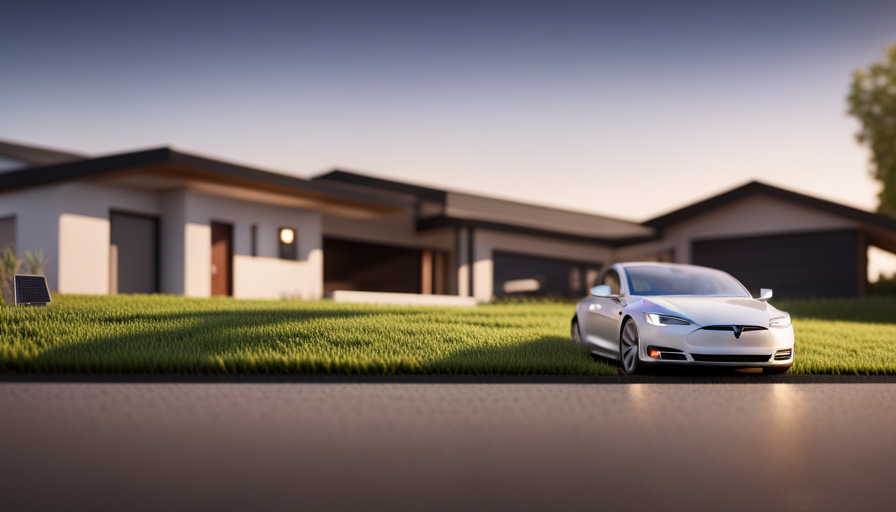
 Beginners Guides1 week ago
Beginners Guides1 week agoHow To Buy A Tesla Tiny House
-

 Energy Efficiency1 month ago
Energy Efficiency1 month agoBest Tiny Homes For Cold Climates
-
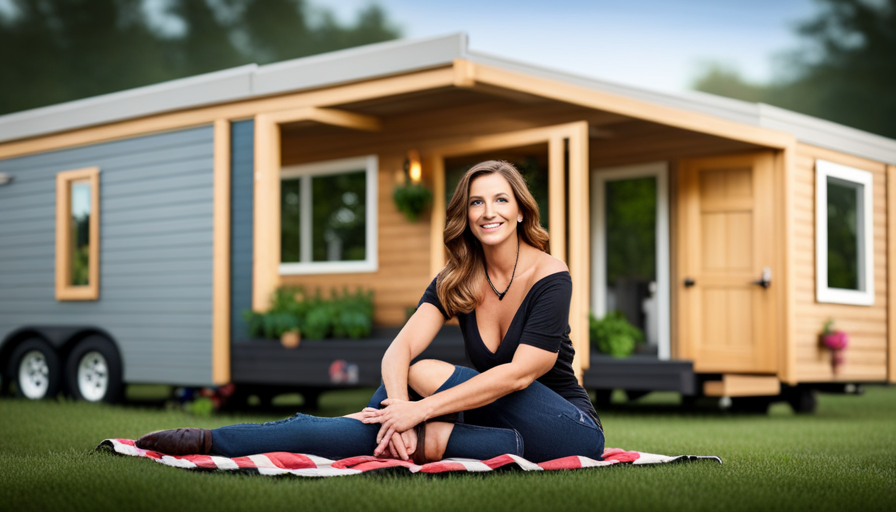
 Beginners Guides4 days ago
Beginners Guides4 days agoTiny House Nation Where Are They Now Stephanie
-
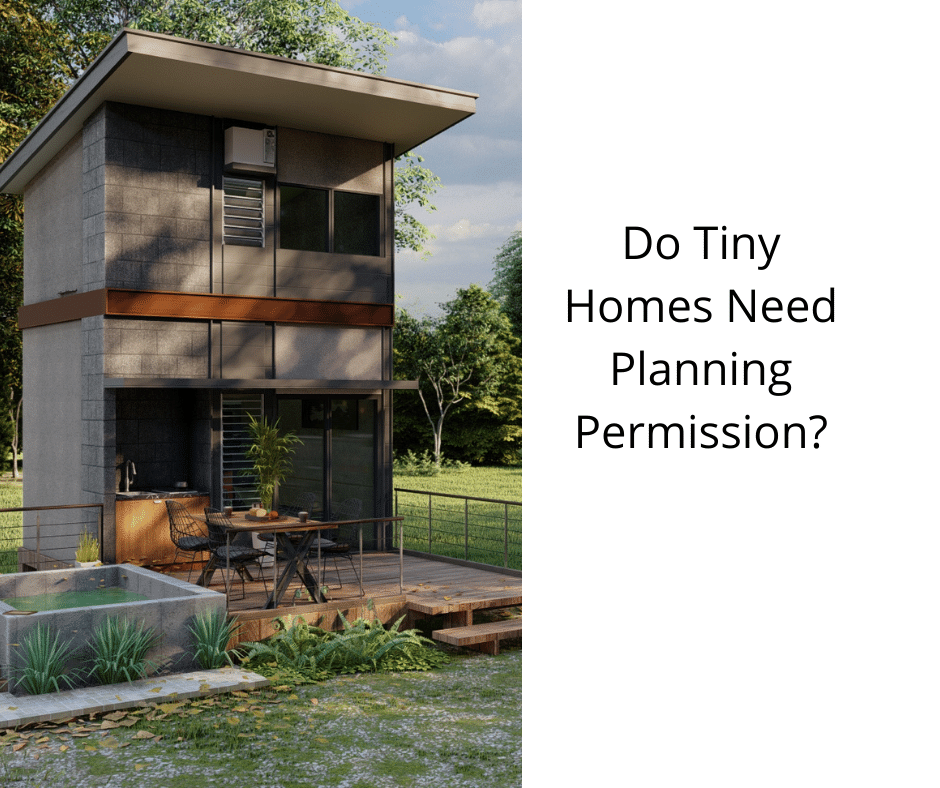
 Tiny House Resources (e.g., legalities, cost, insurance, FAQs)2 months ago
Tiny House Resources (e.g., legalities, cost, insurance, FAQs)2 months agoDo Tiny Homes Need Planning Permission?
-

 Beginners Guides2 weeks ago
Beginners Guides2 weeks agoFrom The Show Tiny House Nation How Many Keep Their Tiny House?
-
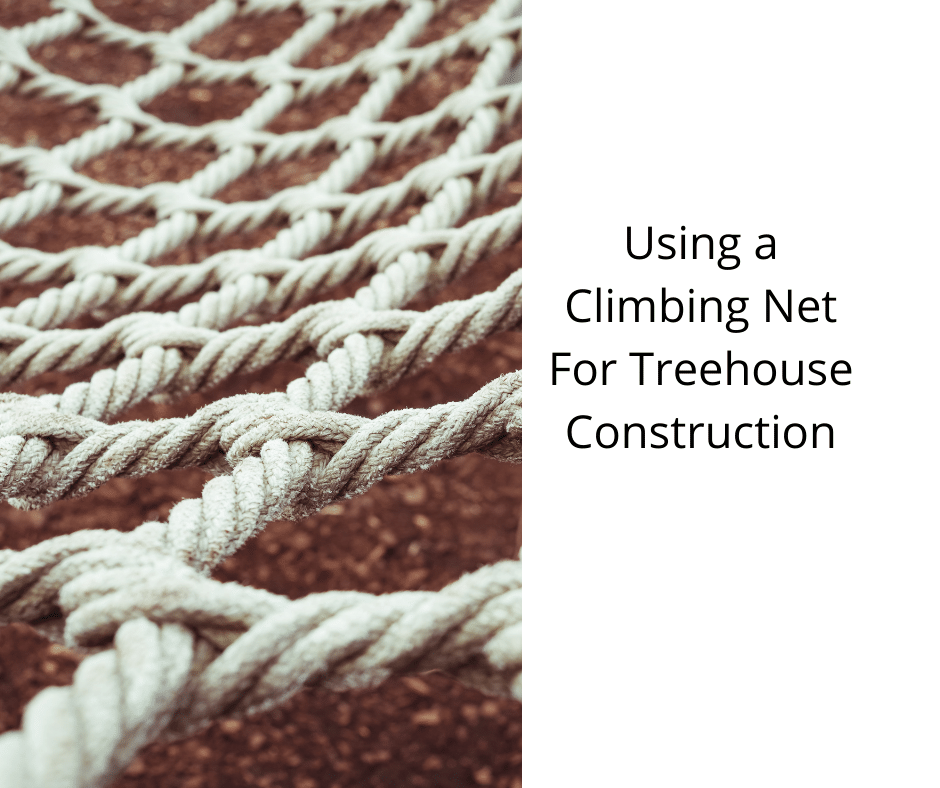
 Beginners Guides2 months ago
Beginners Guides2 months agoUsing a Climbing Net For Treehouse Construction
-
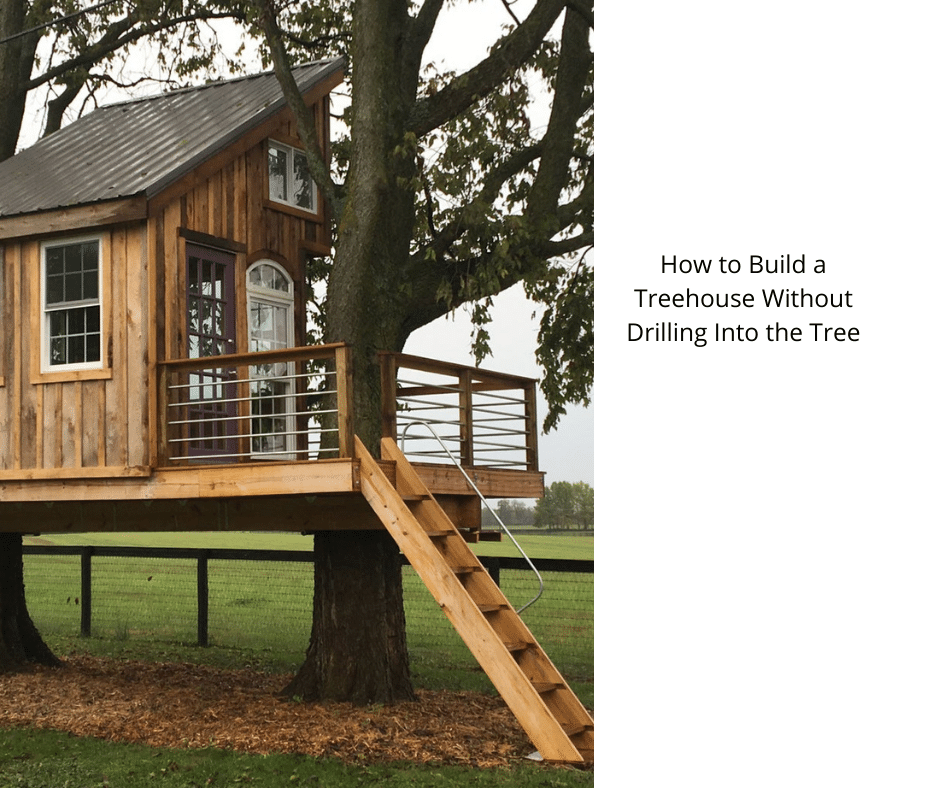
 Beginners Guides2 months ago
Beginners Guides2 months agoHow to Build a Treehouse Without Drilling Into the Tree
-
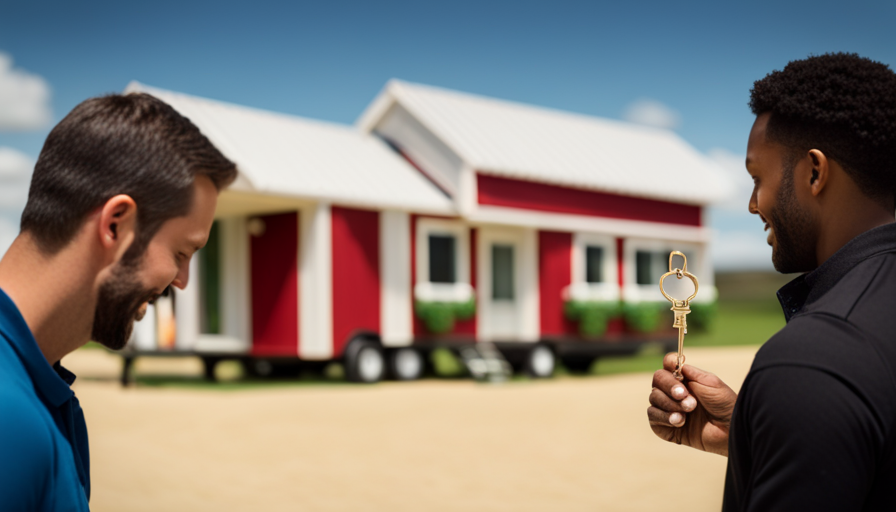
 Beginners Guides2 weeks ago
Beginners Guides2 weeks agoTiny House Nation Who Pays For The Houses









